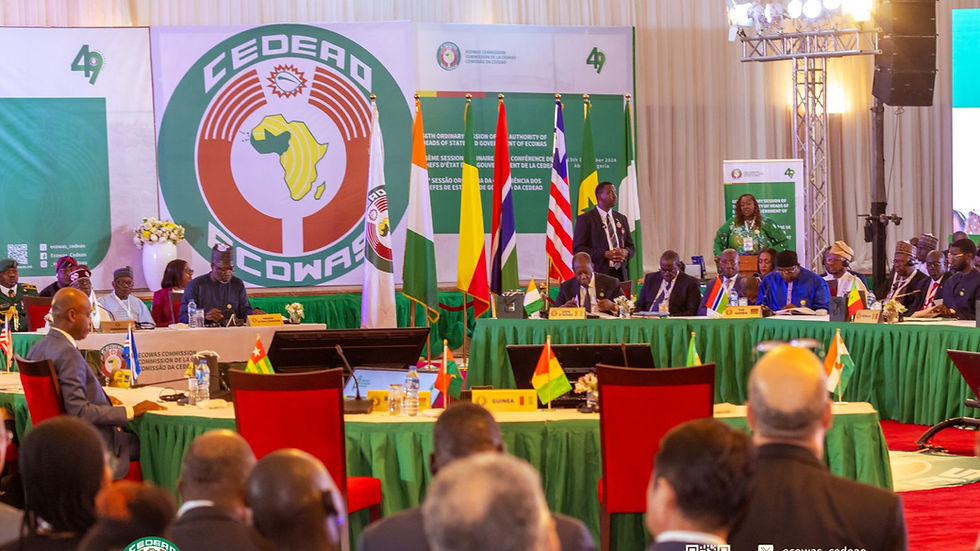NIGERIA FEDERAL GOVERNMENT LAUNCHES 2015 LAUNCHES 2015 – 2019 DRUG CONTROL MASTER PLAN
- WADPN

- Jul 15, 2015
- 3 min read
..Activists call for decriminalization of drug users

Benin City. The Federal Government (FG) has launched a new, multi-sector National Drug Control Master Plan (NDCMP) for the five-year period of 2015 to 2019.
On the special occasion of the International Day Against Drug Abuse and Illicit Trafficking that is celebrated globally on the 26th of June every year, the fight against drug abuse and trafficking recorded another important milestone under the direction of the National Drug Law Enforcement Agency (NDLEA) and the Inter-Ministerial Committee on Drug Control (IMCDC) with the release of the new multi-sector five-year Master Plan for 2015-2019.
While the government has also unveiled plans to celebrate this year’s International Day Against Drug Abuse and Illicit Trafficking today under the United Nations Office on Drugs and Crime (UNODC)’s global campaign theme: “Let’s develop our lives, our communities, and our identities without drugs,” the campaign aims to raise awareness about the challenges posed by illicit drugs to the health and welfare of citizens and the society.
The NDCMP was formulated through a participatory, nationwide consultative process supported by the European Union (EU)-funded project, Response to Drugs and Related Organized Crime in Nigeria and implemented by the UNODC while immediate past President, Goodluck Jonathan, signed the document on 22nd May, 2015.
As one of the activities to mark this year’s International Day Against Drug Abuse and Illicit Trafficking in Nigeria, the Chairman of NDLEA, Alhaji Ahmadu Giade, would officially launch the NDCMP at an event today Friday, 26th June, 2015 at the Transcorp Hilton Hotel in Abuja.
The NDCMP provides an integrated and comprehensive roadmap for multi-sector interventions to address a wide array of drug related issues in Nigeria, in line with international drug control conventions. It outlines activities that will help reduce the incidences of illicit cultivation, production, use, and trafficking of narcotic substances under four main pillars.
These pillars include law enforcement, drug demand reduction, access and control of narcotics and psychotropic substances for medical and scientific purposes, and coordination.
The launch of the NDCMP will officially signify the commencement of its implementation by the relevant stakeholders including Ministries, Departments and Agencies of government at all levels, faith-based organizations, educational and professional institutions, and civil society organizations.
UNODC, a global leader in the fight against illicit drug production, trafficking and use, is currently supporting the IMCDC to develop an operational plan and a monitoring and evaluation framework that will facilitate implementation of the Master Plan. It has a mandate to assist Member States in addressing challenges with development, security, and governance posed by illicit drugs, crime, terrorism, and corruption and is implementing a number of projects in different countries, which aim to develop national response to drug control issues, including Nigeria.
It would be recalled that the NDLEA convicted 2, 054 offenders out of a total of 8, 826 suspected drug traffickers (8, 332 males and 494 females) that were arrested in 2014. Illicit drugs seized in the same year were 166, 697.18 kilogrammes, made up of: cannabis sativa, 158,852kg; cocaine, 226.041kg; heroin, 56.449kg; methamphetamine, 119.2kg; amphetamine, 0.05grammes; ephedrine, 35.8kg; and psychotropic substances 7, 407.44kg. Edo State is one of the states with high drug prevalence.
In spite of increasing success from prosecution for drug trafficking and drug abuse by NDLEA, counselling, treatment and rehabilitation of drug users have not been as successful in Nigeria.
Meanwhile, same day today, thousands of activists of different professional fields and endeavour would converge on more than 150 cities around the world, including Nigeria, to make their voices heard as part of the global campaign, called Support. Don’t Punish.
The campaign calls on governments to put an end to the expensive and counter-productive war on drugs.
Campaigners believe the war to criminalize drug users has failed to reduce drug use or drug supply with huge costs to enforce the law running in excess of $100 billion yearly, often resulting to the mass incarceration of vulnerable and poor people, fuelling rights violations, HIV and other epidemics.
According to campaigners, governments traditionally use the International Day Against Drug Abuse and Illicit Trafficking to ‘celebrate’ arrests, seizures and executions. The “Global Day of Action” therefore aims to change the approach.
A report titled: ‘Not Just in Transit: Drugs, the State and Society in West Africa,’ published by the West Africa Commission on Drugs in June 2014 recommended the treatment of drug use as a public health issue rather than criminal justice matter.
The report also called for the confrontation of weaknesses that traffickers exploit within governments, security services and the judiciary; development, reformation and harmonization of drug laws and pursuit of decriminalization of drug use and low-level, non-violent drug offences.
Sebastine Ebhuomhan, Journalist in Nigeria, Twitter: @SebastineEbhuom




Comments